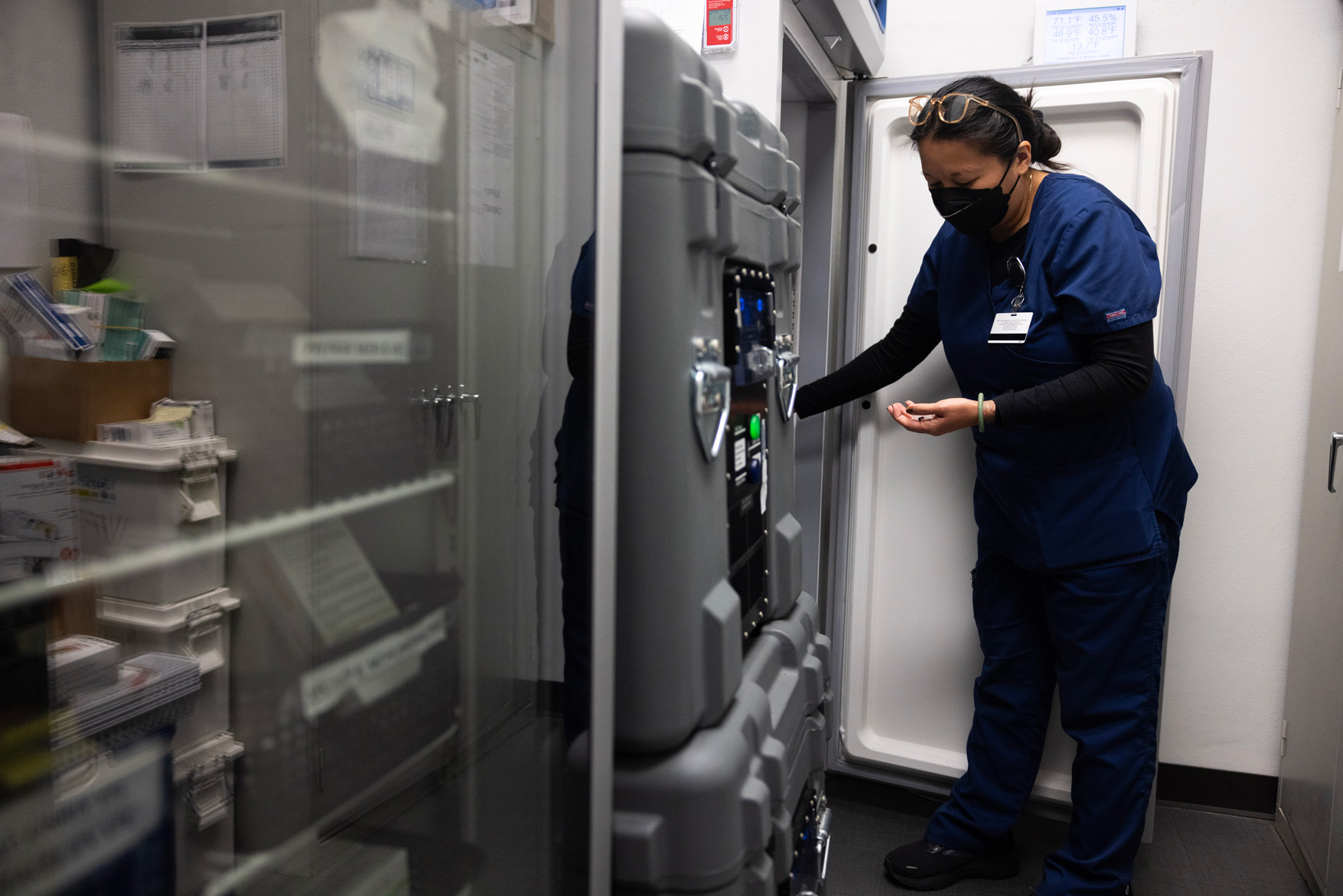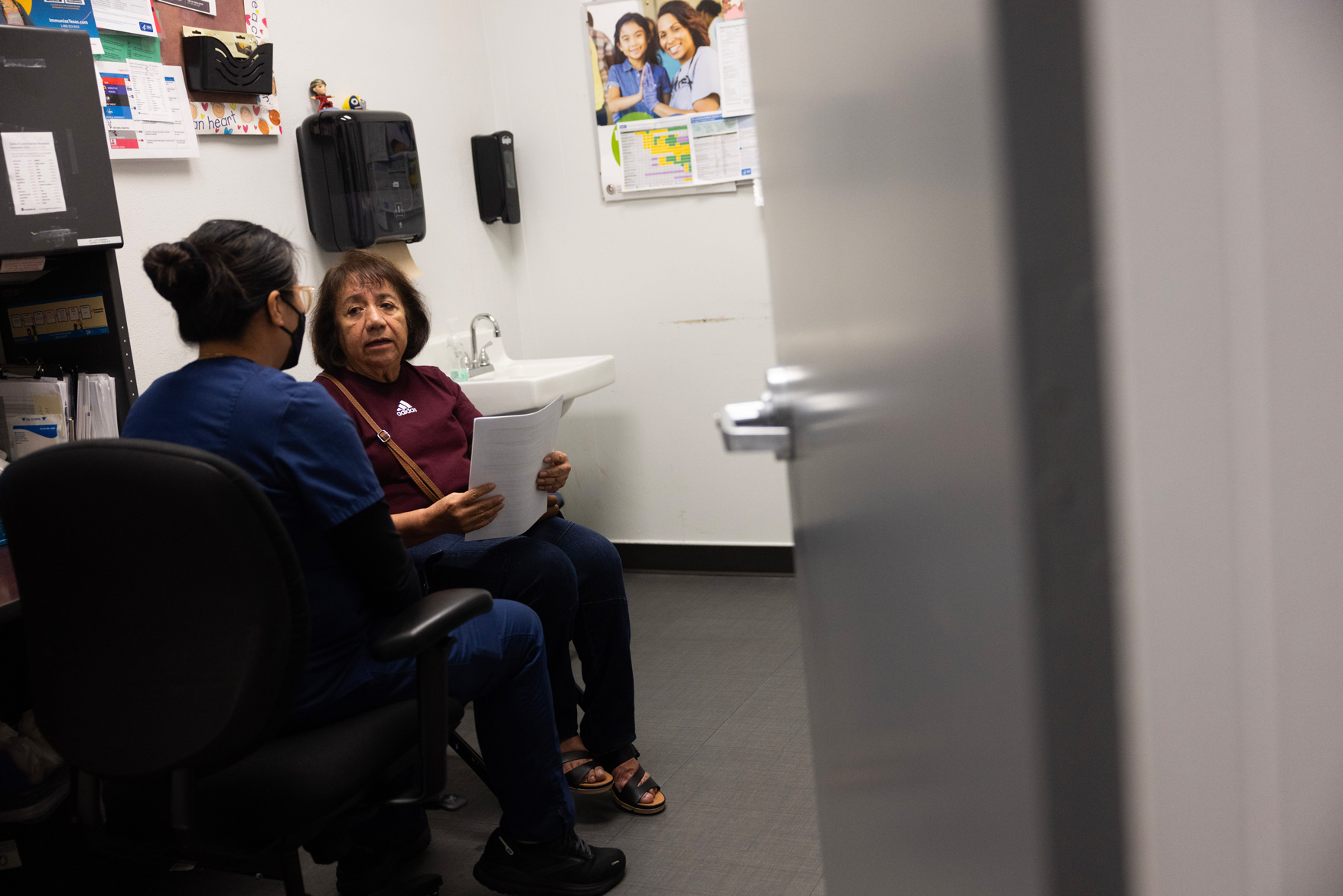|
Getting your Trinity Audio player ready...
|
In the spring of 2021, I was willing to go to extreme lengths for a chance at an early COVID-19 vaccine. For a week in early March, I hung around at my neighborhood CVS in the East End in the evening, in hopes I’d be given one of the sacred “leftover doses” from an already-opened vial of vaccine. When that didn’t work, I was one of countless Houstonians who drove hundreds of miles to Jasper County, where the demand was so low, they were offering shots to young, healthy adults even during what was supposed to be a phased release.

The stakes then felt so high. We’d been living with COVID for more than a year. My husband and I had reconfigured our wedding, and skipped holidays with our families in the Northeast to stay safe. But most importantly, we were ready to become parents. My OBGYN recommended I wait until I was fully vaccinated to become pregnant. But waiting has never been my strong suit.
The stakes feel lower now. There are times when I am able to even forget that COVID-19 circulates among us, something that surely wasn’t the case two springs ago. And as the virus has become less pervasive, so have my concerns about it. I only just received my monovalent booster shot this past Wednesday, one month after it became available. And I’m certainly not the only one who has dampened their sense of urgency.
So what gives?
“If there's a sense of security, I would say it has to be false,” says Dr. Ben Neuman, a virology professor at Texas A&M. “You don't hear about as many deaths, but there is still a spike of deaths every time there's a spike in case numbers. So it's more being burned out, and having the will to look at the numbers.”
READ MORE: 10 things to know about the new COVID-19 vaccines, including where to get them in Houston
The numbers. It feels like in 2020 and 2021, I was confronted with a cornucopia of COVID numbers every day. Some of that is because, for the whole of 2021, I was assigned to be the COVID editor at the newspaper where I worked at the time. Some of it was because organizations like the Texas Medical Center spun up massive daily data dashboards to keep the public informed. Numbers were available just about everywhere.
“It’s a lot harder to get the numbers now,” Neuman says.
It’s also impossible to ignore a massive wave of conspiracies and disinformation that targeted the vaccine as a nefarious agent that would do more harm than good. That’s all been debunked plenty. But the harm was done.
The earliest available COVID vaccines required not one shot, but two — several weeks apart. And while the Centers for Disease Control and Prevention reports that 81.4 percent of eligible Americans received their first dose, only 69.5 percent received their full initial course.
When the first round of boosters came out in 2021, compliance was even lower: Only about 17 percent of Americans rolled up their sleeves for that shot.
All of that together does not inspire hope that this current wave of boosters will be in high demand — despite the fact that more than 1 million Americans have died from COVID-19 in the past four years. But this new round of boosters, Neuman says, is especially important.
“When you caught COVID the first time, it was probably one of these earlier strains,” he says. “Or when you got vaccinated the first time and the second time and the third time, it was all building up immunity against this single early version.”
But this booster, which has versions available from Pfizer, Moderna and BioNTech, is based on the XBB 1.5 Omicron strain, which did not even hit the U.S. until after I, and millions of other Americans, had already received our initial vaccinations.
“Boy am I glad they finally got around to updating the vaccine to XBB, because that’s been the biggest problem, and the only really growing problem of the last 12, 13 months,” Neuman says.
Sounds necessary, if you ask me.
But that doesn’t make it fun. I stepped into the Target in the Heights for an appointment at their in-store CVS on Wednesday, rolled up my sleeve, and took my jab. After initially declining the unicorn sticker offered to me, I asked if I could have it after all: My toddler might want it, I noted.
Then I drove to day care pickup, just waiting for the ache to set in. Every dose of the vaccines has hit me hard. I remember trying to peel myself out of bed after the second shot in April, 2021, knowing I had hours of work ahead of me at my home office, even if it hurt to blink. The fall 2021 booster hit me like a ton of bricks, as it wrapped itself in third-trimester fatigue.
A new study shows that feeling particularly lousy after your vaccine is a good thing. A fever, like the one I clocked at over 101 degrees after my second dose, indicates heightened antibody levels. I believe that for several reasons: The first is that I believe scientists; the second is that I’m one of very few people I know who’ve still never tested positive for COVID.
Of course, that doesn’t mean I wasn’t miserable on Thursday. I felt so dizzy and hot when I awoke in the morning to send our toddler off to day care that I had to lay down halfway through putting on her shoes. I went back to bed, where I cursed not being able to roll over onto my left side, due to pain at the shot site. (I can be a bit of a baby sometimes.)
By Thursday evening, I was able to sit down and gather my thoughts to write this column. Losing a day, I figure, is worth it. If I feel that crummy after just a smidge of the virus is injected into my system, I know actually becoming truly sick from COVID isn’t something I want to mess with.
It’s also not something I want to see other people have to deal with. Lines at the Houston Health Department’s vaccine location on Schuller Road in Northside were flush with residents in search of a flu shot Thursday. But demand for COVID boosters was nearly nonexistent.
That’s frustrating.
“Science’s job is to come up with the answers to problems that the future will need, and I think the science part of that is working,” Neuman says. “But science doesn’t get to tell the world what to do. That’s the social contract.”
Share your Houston stories with me. We can start on Twitter, Facebook and Instagram. Or you can email me at [email protected].





